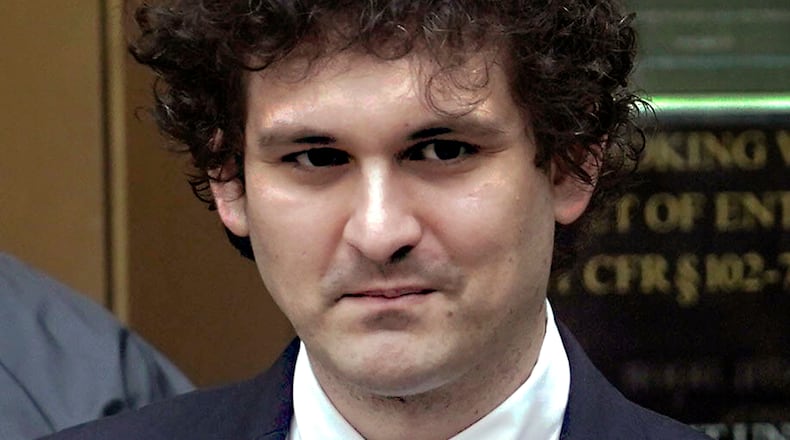Bankman-Fried, 33, is serving a 25-year-prison term after a jury found that he defrauded customers and investors of billions of dollars while he operated FTX, once the world’s second-largest crypto exchange.
The company collapsed into bankruptcy in November 2022 just months after it seemed to be thriving, with a Super Bowl advertisement and celebrity endorsements.
“Mr. Bankman-Fried’s trial was fundamentally unfair because the jury only got to hear one side of the story,” Shapiro said.
Circuit Judge Barrington D. Parker said his reading of the trial record found “very substantial evidence” supporting the conviction.
“Are you seriously suggesting to us that if your client had been able to testify about the role that attorneys played in preparing these various documents, the not-guilty verdicts would have rolled in?” Parker asked. His skepticism was shared by two other judges: Eunice C. Lee and Maria Araujo Kahn.
The appeals court will rule at a later date.
Parker said defense attorneys did not assert at trial that Bankman-Fried relied on the advice of attorneys for all of his decisions.
“You gave that up and had this vague there-were-attorneys-out-there-somewhere defense,” Parker said.
Shapiro said the government unfairly told the jury that thousands of investors lost billions of dollars they could never recover.
“The picture the government painted was a false one,” she said. “Mr. Bankman-Fried should have been able to tell his story. ... The jury should have had the full picture. And yet, Mr. Bankman-Fried, sits in prison.”
She argued that Judge Lewis A. Kaplan improperly limited Bankman-Fried's testimony, preventing the jury from hearing the full role attorneys played in the decisions he made and that customer funds were never stolen and a temporary liquidity crisis at FTX did not mean they would never get their money back.
In fact, she said, 98% of all creditors have received 120% of their investment and the estate still has $8 billion to pay about $2 billion in claims.
A government attorney, Nathan Rehn, countered that the trial was fair and the evidence against Bankman-Fried was overwhelming.
He noted that three of the four people who knew that Bankman-Fried was illegally using billions of dollars in customer deposits to fund his investments and political donations testified at the trial against him.
